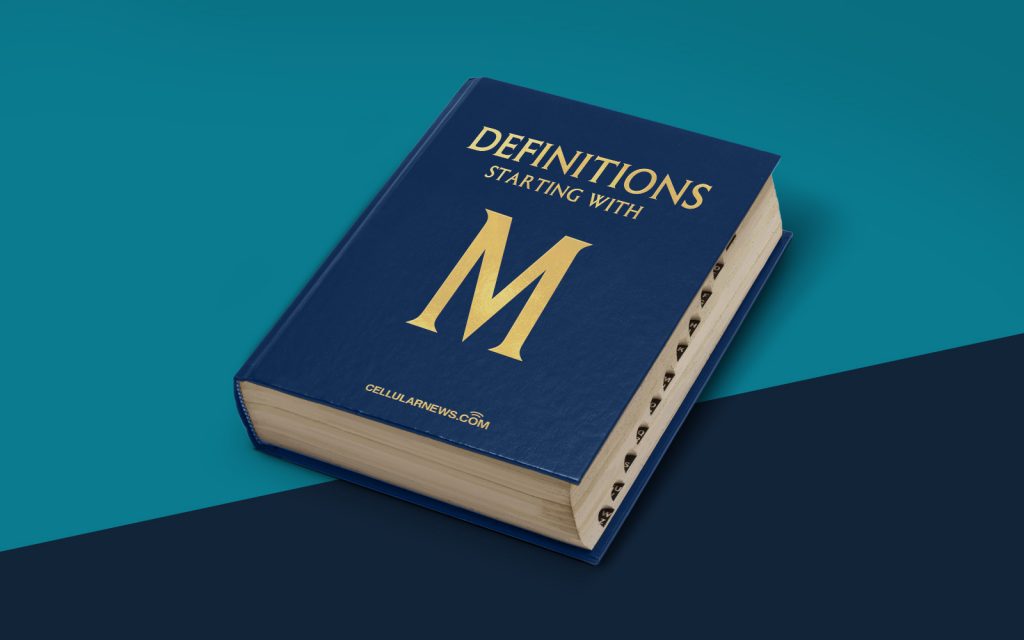
What is Memory? A Deep Dive into this Fascinating Phenomenon
Welcome to the first installment of our “DEFINITIONS” series, where we explore and unravel complex concepts that are both intriguing and relevant in today’s world. In this edition, we delve into the enigmatic realm of memory, an integral part of human cognition that shapes our experiences and influences our daily lives. So, buckle up as we take a deep dive into the depths of memory and unlock its secrets.
Key Takeaways:
- Memory is the cognitive process of encoding, storing, and retrieving information.
- There are different types of memory, including sensory, short-term, and long-term memory.
What is memory, exactly?
Memory refers to the faculty of the brain that enables us to encode, store, and retrieve information. It allows us to retain and recall past experiences, knowledge, and skills, forming the basis of our identity and shaping our understanding of the world. Without memory, every moment would feel like a blank slate, devoid of meaning or continuity.
The inner workings of memory:
Memory, although complex, can be broadly categorized into three main types:
- Sensory Memory: This is the earliest stage of memory where information from our senses (think sight, hearing, touch, taste, and smell) is briefly registered. It acts as a buffer, holding this sensory information for a brief period, before either discarding it or transferring it to the next stage of memory.
- Short-term Memory: Also known as working memory, this stage is responsible for holding and manipulating information for immediate use. It has a limited capacity and is fleeting in nature, allowing us to recall a phone number just long enough to dial it or retain a set of instructions while completing a task. If the information is not rehearsed or consolidated, it is quickly forgotten.
- Long-term Memory: This is where lasting memories reside. It has an essentially unlimited capacity and is divided into two subcategories: explicit memory (conscious recall of facts and experiences) and implicit memory (unconscious, automatic memory such as motor skills or classical conditioning). Retrieving information from long-term memory may require cues or prompts to trigger the recall process.
How does memory work?
Memory formation involves three essential processes: encoding, storage, and retrieval. Here’s a simplified breakdown of how these processes work:
- Encoding: This is the initial process of converting sensory information into a format that the brain can understand and store. It involves transforming the information into neural codes or patterns through a series of intricate biological and chemical events.
- Storage: After encoding, memories are stored in various areas of the brain, including the hippocampus and cerebral cortex. The complexity and strength of the memory determine the specific brain regions involved. Memories can gradually transition from short-term to long-term storage through a process called consolidation, which involves strengthening the neural connections associated with the memory.
- Retrieval: The final stage of memory involves recalling and accessing the stored information when needed. Retrieval can be influenced by various factors, such as the availability of retrieval cues, emotional state, and context. Sometimes memories may fade or become distorted over time, leading to inaccuracies in recall.
The importance of memory:
You might be wondering, why is memory so crucial? Well, memory is the foundation of learning, decision-making, problem-solving, and creativity. It helps us navigate through daily tasks and guides our future actions based on past experiences. Additionally, memory allows us to preserve our personal and shared history, passing down knowledge and culture from one generation to the next.
So, the next time you reminisce about a cherished moment, recall a loved one’s face, or effortlessly recite your favorite song lyrics, take a moment to appreciate the remarkable phenomenon that is memory. It is the key to our identity, connecting us to who we are and shaping our perception of the world.
Key Takeaways:
- Memory is the cognitive process of encoding, storing, and retrieving information.
- There are different types of memory, including sensory, short-term, and long-term memory.
